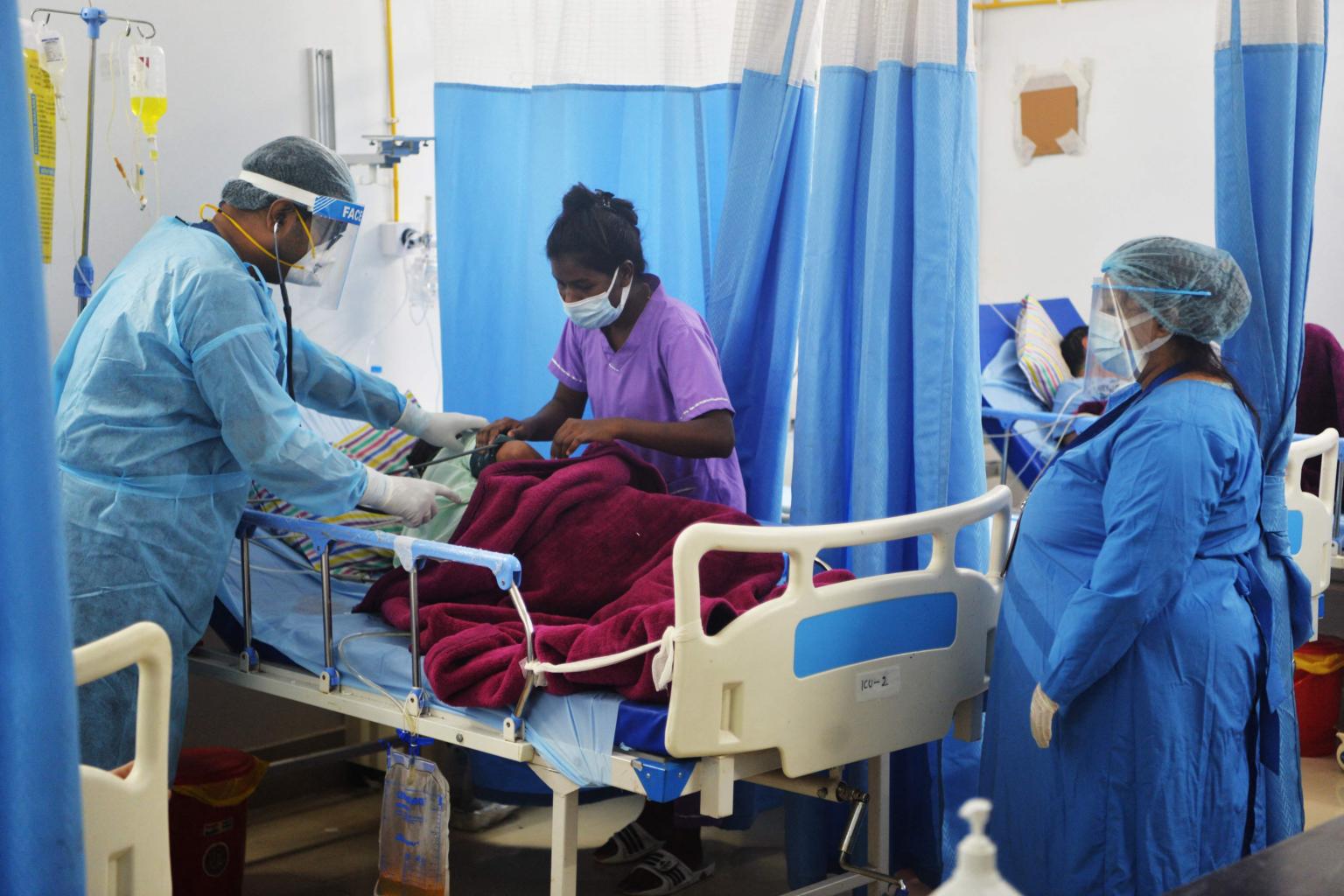Delta Plus, a potentially deadlier coronavirus variant, causing concern in India
Sign up now: Get insights on Asia's fast-moving developments

India has passed 30 million Covid-19 infections since the pandemic began.
PHOTO: AFP
Follow topic:
NEW DELHI - The Delta coronavirus with a particular spike protein mutation - dubbed Delta Plus - has been labelled a "variant of concern" by the Indian government.
This decision was announced on Tuesday (June 22) after scientists working at a consortium of genomic sequencing labs told the government they had found evidence suggesting the new variant is more transmissible, with stronger binding to lung cells and a potential resistance to treatment by monoclonal antibodies.
There have been at least 22 cases of Covid-19 caused by the Delta Plus variant detected in the country so far, in the states of Maharashtra, Kerala and Madhya Pradesh.
The Ministry of Health and Family Welfare has advised these states to take up "immediate containment measures" in the districts and clusters where this variant has been reported.
Measures suggested include preventing crowds and intermingling of people, widespread testing and prompt tracing as well as widespread vaccination.
"The (central government) has sent an advisory to these states about their public health response. The measures, while broadly remaining the same as have been implemented by them earlier, have to become more focused and effective. We don't want this small number to take a bigger form," Dr V.K. Paul, a member of a government policy think-tank, told reporters.
The ministry has also directed the three states to "promptly" send adequate samples of those testing positive to government laboratories for further epidemiological studies.
The new variant, referred to as Delta with K417N, has been found in several other countries, including Britain, the United States, Canada, Japan, Nepal, Poland, Portugal, Russia, Switzerland and Turkey. A majority of these reported cases are from the US, Britain and Portugal.
There is so far no publicly available data on how effective the vaccines currently being used in India are against Delta Plus and the government has said it will share this information as and when it becomes available.
What is the Delta Plus variant?
The Delta Plus variant carries a K417N mutation which is associated with better immune-escape properties.
The mutation has been reported in the Beta variant, first detected in South Africa, and is believed to have made vaccines less effective against it.
K417N's emergence in the highly contagious Delta variant, which is already a variant of concern and is becoming the globally dominant strain, has prompted worry.
Indian scientists have said the Delta Plus variant is highly transmissible, with strong binding to lung cells and potential resistance to treatment by monoclonal antibodies. But more studies are required to determine if it is more dangerous than the original Delta variant.
There are now two reported lineages of the Delta Plus variant - Delta-AY1 and Delta-AY2. Delta-AY1 is currently more prevalent globally.
Besides India, Delta Plus has been found in countries such as the United Kingdom, United States, Canada, Japan, Nepal, Poland, Portugal, Russia, Switzerland and Turkey. Some media reports have suggested that the variant was identified as early as March in Europe.
According to the World Health Organisation, a strain of Sars-CoV-2, the coronavirus that causes Covid-19, is classified as a variant of interest if it has been identified to cause community transmission or multiple cases, or has been detected in multiple countries
A variant of concern is one that shows evidence of higher transmissibility and virulence, leading to more severe disease that requires hospitalisation and causes deaths.

